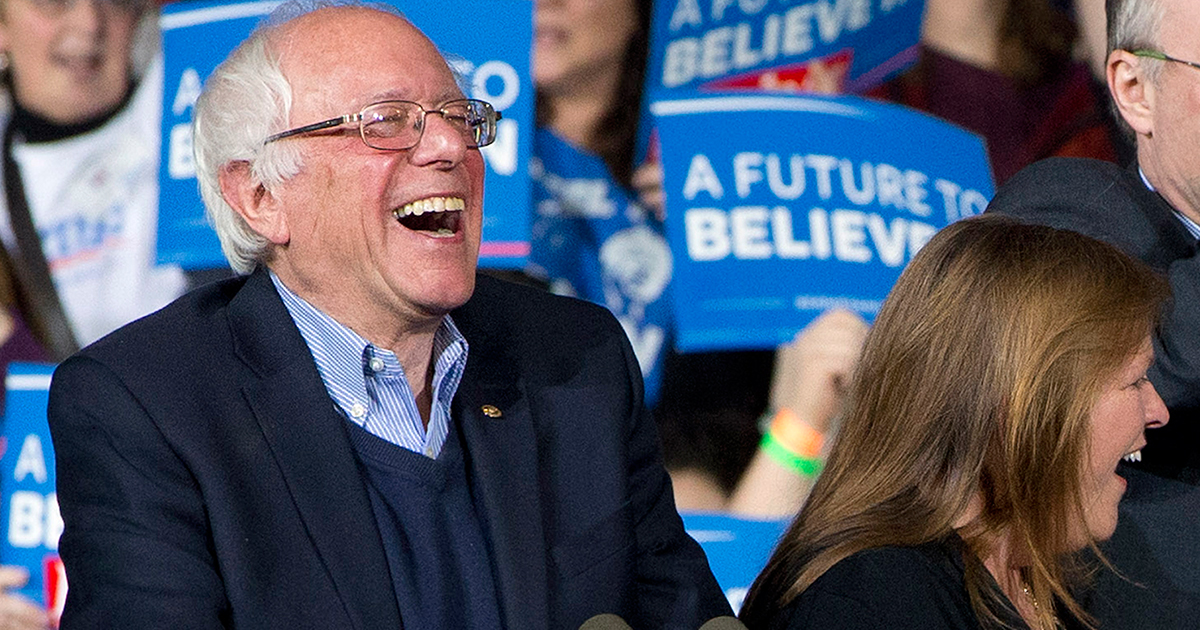Bernie Sanders Changed the Game for Young Voters in Ohio

By:
Vermont Sen. Bernie Sanders scored a legal victory on Friday that will benefit both 17-year-old voters and, potentially, his presidential hopes.
In response to a federal lawsuit Sanders filed against Ohio Secretary of State Jon Husted last week, an Ohio county judge ruled that 17-year-olds who will turn 18 by election day have the right to vote in the state's presidential primary.
 AP/Jacquelyn Martin - apimages.com
AP/Jacquelyn Martin - apimages.com
Earlier this month, a national voting rights organization sued Husted over alleged changes to Ohio's 2015 election manual. The group claimed that Husted covertly revised the state's policy to prevent older 17-year-olds from voting for their candidate of choice in the presidential primary, which will be held on March 15. Sanders raised similar concerns in a federal lawsuit days later.
"Plaintiffs are entitled to a judgment that the secretary abused his discretion," Franklin County Common Pleas Court Judge Richard Frye announced in his ruling on Friday.
The case is more complicated than it may seem.
Last week, Husted said he welcomed lawsuits concerning Ohio's primary voting policy because "the law is crystal clear" and "nothing is new here." His office denied that 17-year-olds had previously been allowed to vote in the state's presidential primary and emphasized that voters under 18 were limited to "nominating" candidates rather than "electing" them. Because voting for presidential candidates in the state primary involved "electing" delegates to represent voters, 17-year-olds were therefore prohibited from participating.
Part of the confusion over the state's primary process has to do with conflicting interpretations of the law's language. But perhaps even more problematic is the fact that 17-year-olds in Ohio have apparently been casting votes in the presidential primary that were "segregated" and "not counted," The Dayton Daily News reported.
Husted says he will appeal the judge's ruling.
"This last-minute legislating from the bench on election law has to stop," Husted said in a statement on Friday. "Our system cannot give one county court the power to change 30 years of election law for the entire state of Ohio, 23 days into early voting and only four days before an election."
Asked to clarify the reason for Husted's appeal, press secretary Joshua Eck told ATTN: that "[t]he Secretary is compelled to appeal because this ruling is not consistent with Ohio’s laws or decades of precedent."
Sanders celebrated the the Ohio decision as a win for young voters.
An attorney for Sanders’ campaign, Brad Deutsch, applauded the Ohio judge for ruling in favor of 17-year-olds in Ohio, who will now have the ability to participate in the presidential primary next week.
"This is a huge victory for 17-year-olds across Ohio," Deutsch said in an official statement. "Their votes for presidential nominees will now count when they vote on either Tuesday or over the weekend in early voting."
"The judge further admonished the Secretary of State for abusing his discretion by prohibiting 17-year-olds from voting for presidential candidates and not only directed the Secretary to instruct poll workers to allow 17-year-olds to vote but also instructed them to make a reasonable effort to attempt to determine and record choices that have already been made by any 17-year-old who already voted in early voting." — Official Statement from Sanders Campaign
But while Sanders' campaign may be celebrating the decision as a victory for 17-year-olds, the ruling represents a win for the presidential candidate as well. Sanders' appeal among millennial voters has given him an demonstrable advantage in several early primary states — including Iowa, New Hampshire, and Nevada, where he received more than 80 percent of the millennial Democrat vote, USA Today reported.
